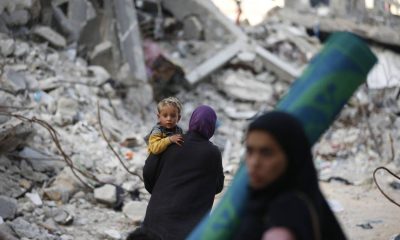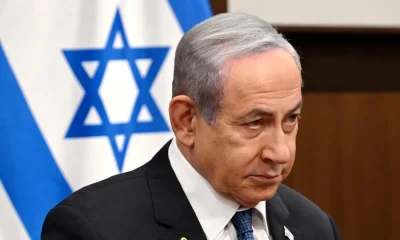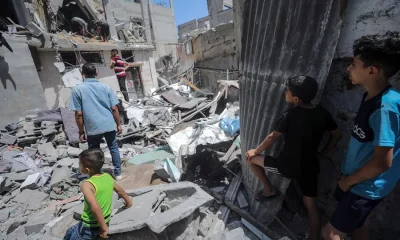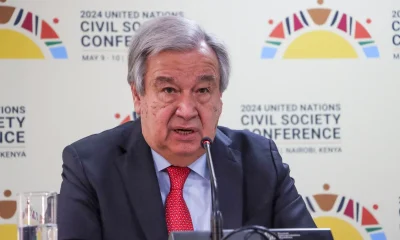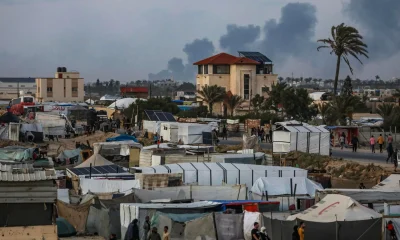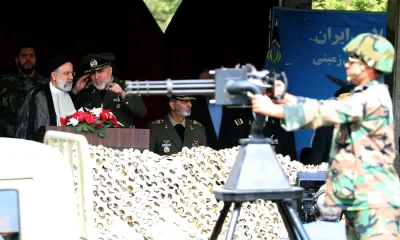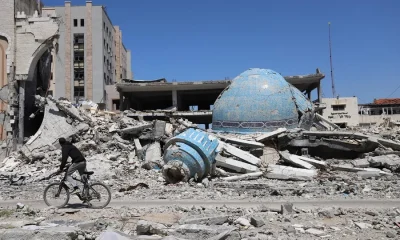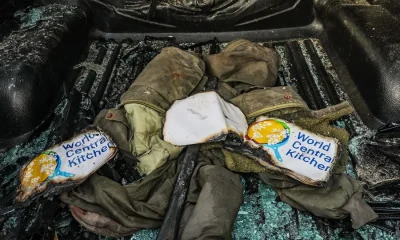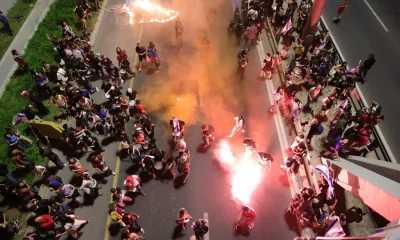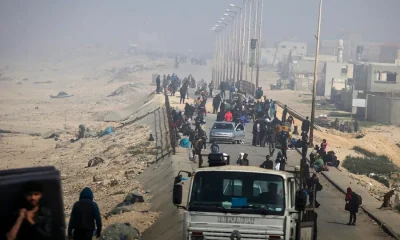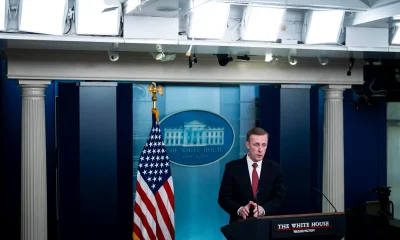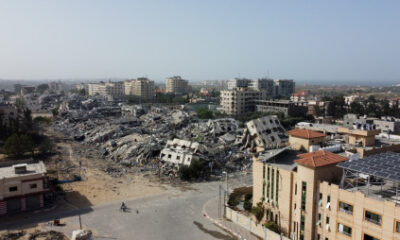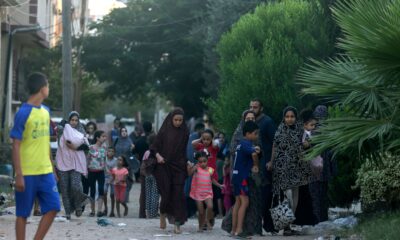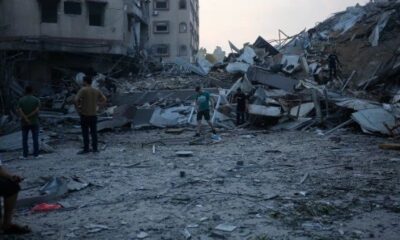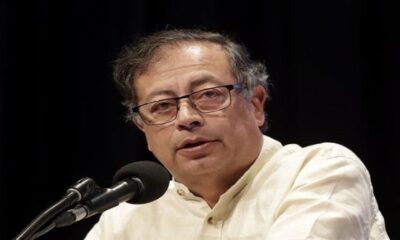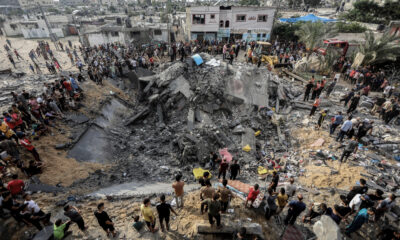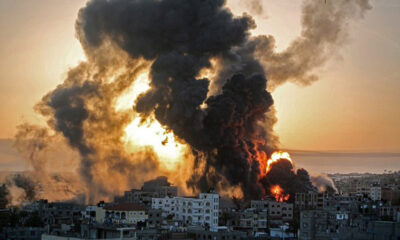International
Israel’s offensive is based on Yabalia and the Army orders the evacuation of more areas of Rafah
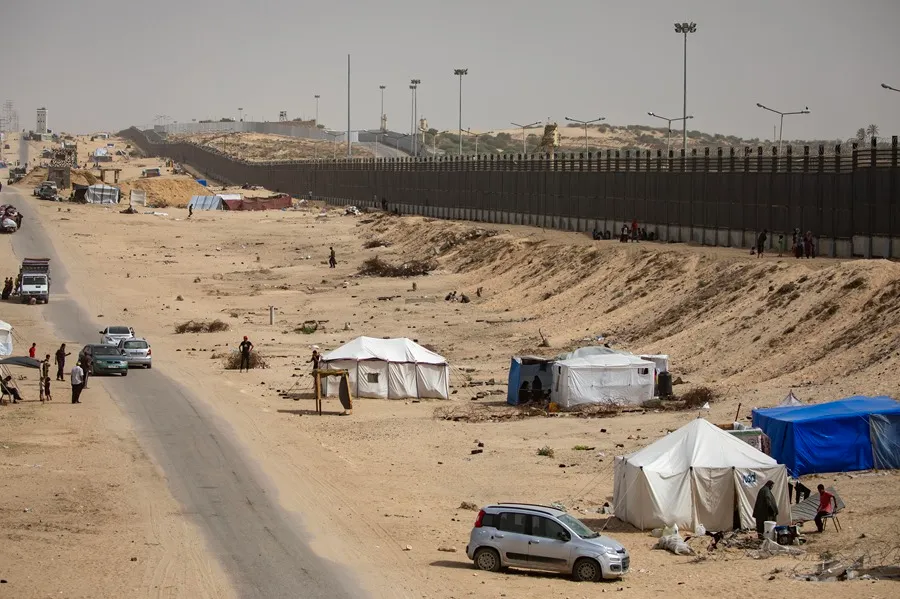
The Israeli military offensive continues to focus this Monday in Yabalia, a city in the north of the Gaza Strip where troops have resumed their activity in the face of the return of Hamas.
In addition, his artillery extends through the central and east neighborhoods of Rafah, at the southern end of the enclave, which Israel ordered to be evacuated two days ago.
Some 360,000 people have already fled Rafah since the first evacuation order issued by the Israeli Army, according to estimates by the UN Agency for Palestinian Refugees (UNRWA).
“People don’t know where to go. Everyone in Rafah, even in the areas where the evacuation has not yet been ordered, is leaving. On the street, they ask each other what is the best place to get around,” a displaced gazati in the Tal al Sultan neighborhood, in the west of the city, told EFE.
In Rafah, “fear and confusion” reign, since people are reluctant to travel to what Israel has designated as a “humanitarian zone” for them, in the coastal area of Mawasi, where hundreds of thousands of people live crowded in makeshift shops on the beach, without drinking water or sanitation.
This Monday, the evacuation orders have been extended to two new areas of the center of the population, already more in the western half of the city, where humanitarian aid has not entered for almost a week since Israel keeps the steps of Kerem Shalom and Rafah closed, which connects the enclave with Egypt.
In the last few hours, at least eight people have died in the city, one of them minor, whose lifeless bodies arrived at the Kuwaiti hospital of the Rafah governorate.
“There is no place to go. There is no security to move without a ceasefire,” UNRWA claimed.
In Yabalia, the attacks have reached homes both in the refugee camp and in the city, where ambulance services rescued at least twenty bodies and treated dozens of wounded.
“The occupation forces attacked the ambulances in the Yabalia camp, where we could not reach a large number of victims,” denounced the director of emergency services in northern Gaza.
For its part, the official Palestinian agency Wafa, citing testimonies from residents, indicated that Israeli forces “surrounded and assaulted” the shelter centers, forcing hundreds of people to move west of the city.
“The Israeli forces try to advance towards the center of the field and shoot everything that moves around them, while the gifts fly intensely over the area at a low altitude,” he explained.
After ordering the evacuation of two large neighborhoods of Yabalia on Saturday, the Israeli Army resumed its military offensive on that city in northern Gaza on Sunday, one of the first places it attacked harshly in October when the war began.
“The occupation forces are now trying to besiege and break into the six shelter centers located to the east of the camp. There are shots with drones and snipers, forcing the displaced to leave without knowing where to go,” a resident of Yabalia explained to EFE by phone, who did not want to give his name for safety.
The same source also reported strong armed clashes between Palestinian militias and Israeli troops inside the camp, so the Israeli Army has had to ask for reinforcements.
As has happened with Zeitun, a neighborhood of Gaza City, Israeli forces have resumed their military activity in those parts of the northern Gaza Strip, by detecting – according to information from the intelligence services – that Hamas troops have returned to the area and are being regrouped.
The Israeli offensive against the Gaza Strip since October 7 has caused the death of 35,034 citizens, most of them children and women, in adde of 78,755 injured and 10,000 missing people who are estimated to be trapped under the rubble.
In the last 24 hours, the Israel Air Force attacked 120 military targets from Hamas in the Gaza Strip, while its ground troops operate in Rafah, in the south, and in Zeitun and Yabalia, in the north, the Army reported.
The 162ndª Division fights in the east of Rafah, south of the Gaza Strip, where they say they killed several Hamas fighters, located and confiscated weapons found in a school and destroyed military infrastructure.
“The Air Force attacked several Hamas targets, including underground sites and a building where the agents met,” the Army said.
Meanwhile, the 99th Division maintains its offensive activity in Zeitun, a southern neighborhood of Gaza City where Hamas was also regrouping, and where troops today “roaned a weapons depot at the home of a Palestinian operational.”
A foreign United Nations employee died today in Rafah in an Israeli attack against a humanitarian convoy, the Government of Hamas in the Gaza Strip said on Monday.
“This afternoon, the Israeli occupation army killed a foreign employee and injured another foreign employee in Rafah (southern Gaza Strip), where they were attacked while traveling in a vehicle with the United Nations flag and the United Nations badge,” Gaza authorities said in a statement.
The UN confirmed on Monday that one of its employees died and another was injured in Gaza when the vehicle they were in was hit by a projectile, allegedly Israeli, while they were on their way to the European Hospital this morning.
The two victims, whose nationality has not been confirmed, worked for the Department of Security and Protection (DSS), according to a statement from the organization.
The UN spokesman, Farhan Haq, said that he could not even relet his nationality although “they are international personnel,” and said that the first thing will be to inform their families and governments.
“As part of their daily work, they go to different places to verify the safety conditions,” and in this case it was the European Hospital of Rafah, stressed Haq, who added that the vehicle in which he was traveling was duly identified as belonging to the United Nations fleet.
The secretary general called for “a complete investigation” into what happened, and said that he “condemns all attacks” against UN personnel.
International
ACLU seeks emergency court order to stop venezuelan deportations under Wartime Law

The American Civil Liberties Union (ACLU) on Friday asked two federal judges to block the U.S. government under President Donald Trump from deporting any Venezuelan nationals detained in North Texas under a rarely used 18th-century wartime law, arguing that immigration officials appear to be moving forward with deportations despite Supreme Court-imposed limitations.
The ACLU has already filed lawsuits to stop the deportation of two Venezuelan men held at the Bluebonnet Detention Center, challenging the application of the Alien Enemies Act of 1798. The organization is now seeking a broader court order that would prevent the deportation of any immigrant in the region under that law.
In an emergency filing early Friday, the ACLU warned that immigration authorities were accusing other Venezuelan detainees of being members of the Tren de Aragua, a transnational criminal gang. These accusations, the ACLU argues, are being used to justify deportations under the wartime statute.
The Alien Enemies Act has only been invoked three times in U.S. history — most notably during World War II to detain Japanese-American civilians in internment camps. The Trump administration has claimed the law allows them to swiftly remove individuals identified as gang members, regardless of their immigration status.
The ACLU, together with Democracy Forward, filed legal actions aiming to suspend all deportations carried out under the law. Although the U.S. Supreme Court recently allowed deportations to resume, it unanimously ruled that they could only proceed if detainees are given a chance to present their cases in court and are granted “a reasonable amount of time” to challenge their pending removal.
International
Dominican ‘False Hero’ Arrested for Faking Role in Nightclub Collapse That Killed 231

A man identified as Rafael Rosario Mota falsely claimed to have rescued 12 people from the collapse of the Jet Set nightclub in Santo Domingo—a tragedy that left 231 people dead—but he was never at the scene.
Intelligence agents in the Dominican Republic arrested the 32-year-old man for pretending to be a hero who saved lives during the catastrophic incident, authorities announced.
Rosario Mota had been charging for media interviews in which he falsely claimed to have pulled survivors from the rubble after the nightclub’s roof collapsed in the early hours of April 8, during a concert by merengue singer Rubby Pérez, who was among those killed.
“He was never at the scene of the tragedy,” the police stated. The arrest took place just after he finished another interview on a digital platform, where he repeated his fabricated story in exchange for money as part of a “media tour” filled with manipulated information and invented testimonies.
“False hero!” read a message shared on the police force’s Instagram account alongside a short video of the suspect, in which he apologized: “I did it because I was paid. I ask forgiveness from the public and the authorities.”
Central America
Nicaraguan Exiles to Mark 7th Anniversary of 2018 Protests with Global Commemorations

The Nicaraguan opposition in exile announced on Thursday that it will commemorate the seventh anniversary of the April 2018 protests against the government of President Daniel Ortega and his wife, Rosario Murillo, with events in Costa Rica, the United States, and several European countries.
The commemorative activities—which will call for justice for the victims, as well as freedom and democracy for Nicaragua—will include religious services, public forums, cultural fairs, and other public gatherings, according to official announcements.
In April 2018, thousands of Nicaraguans took to the streets to protest controversial reforms to the social security system. The government’s violent response quickly turned the demonstrations into a broader call for the resignation of President Ortega, who is now 79 and has been in power since 2007.
The protests resulted in at least 355 deaths, according to the Inter-American Commission on Human Rights (IACHR), although Nicaraguan organizations claim the toll is as high as 684. Ortega has acknowledged “more than 300” deaths and maintains the unrest was an attempted coup d’état.
-

 Central America4 days ago
Central America4 days agoHonduran Police Offer $135K for Tips Leading to the Arrest of Romeo Vásquez
-

 Central America3 days ago
Central America3 days agoPetro questions Ecuador’s vote, cites reports of military control and arrests
-

 International4 days ago
International4 days agoMPV Denounces Electoral Blockade as Secretary-General is Disqualified for May Elections
-

 International2 days ago
International2 days agoArsenal stun Real Madrid at the Bernabéu to reach Champions League semifinals
-

 International4 days ago
International4 days agoMaduro Plans Major Workers’ March on May 1st to Defend Venezuela’s Freedom
-

 International2 days ago
International2 days agoBogotá residents line up for yellow fever vaccine amid national alert
-

 International1 day ago
International1 day agoDominican ‘False Hero’ Arrested for Faking Role in Nightclub Collapse That Killed 231
-

 Central America1 day ago
Central America1 day agoNicaraguan Exiles to Mark 7th Anniversary of 2018 Protests with Global Commemorations
-

 International2 days ago
International2 days agoMexico refuses to restore ties with Ecuador while Noboa remains in office
-

 International2 days ago
International2 days agoDeSantis’ immigration crackdown sparks alarm in Venezuelan Communities in Doral
-

 International3 days ago
International3 days agoColombia: Search continues for missing limb of italian scientist found dismembered
-

 International2 hours ago
International2 hours agoACLU seeks emergency court order to stop venezuelan deportations under Wartime Law
-

 Central America2 hours ago
Central America2 hours agoUN complaint filed against Costa Rica over detention of migrant children














